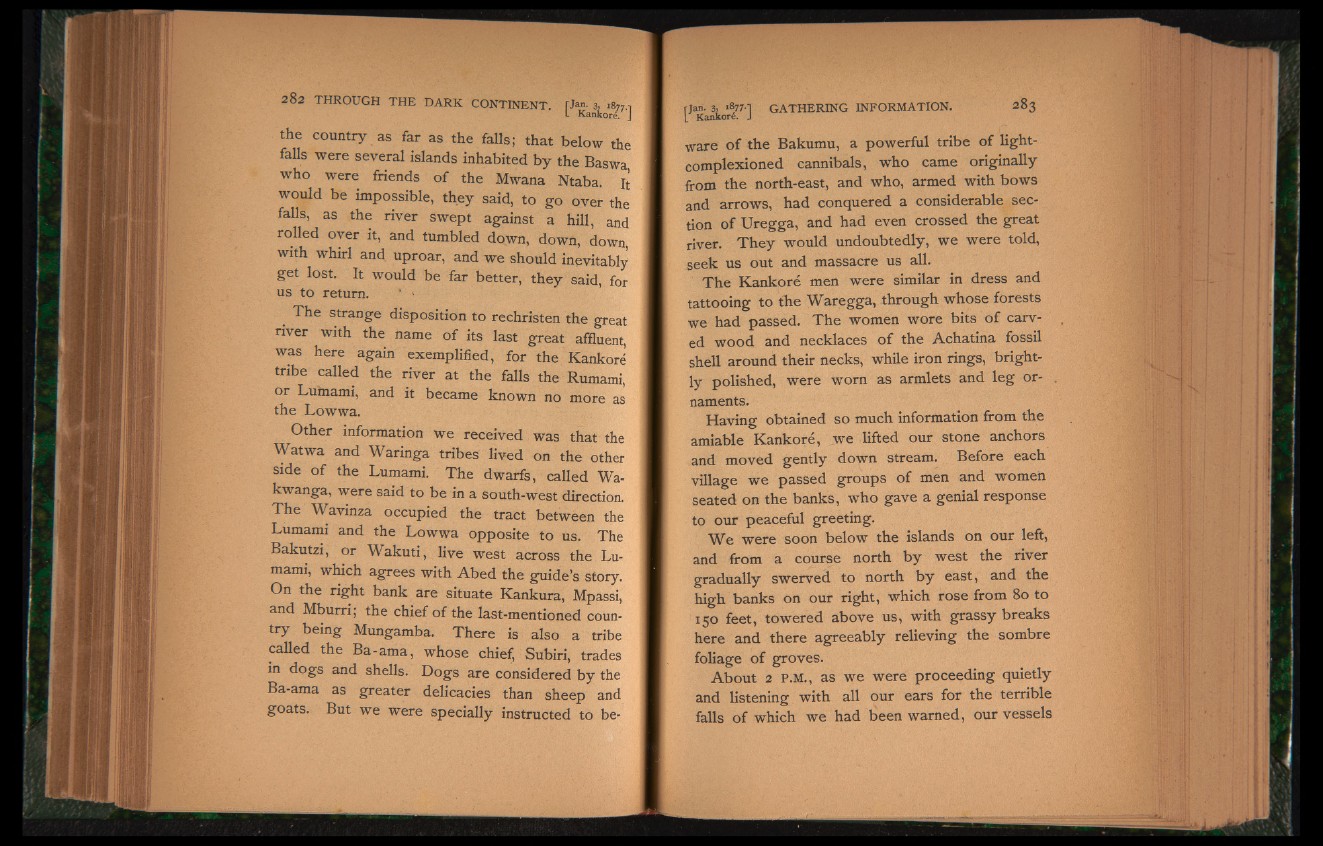
the country as far as the falls; that below the
falls were several islands inhabited by the Baswa
who were friends of the Mwana Ntaba. It
would be impossible, they said, to go over the
falls, as the river swept against a hill, and
rolled over it, and tumbled down, down, down,
with whirl and uproar, and we should inevitably
get lost. It would be far better, they said, for
us to return. ' >
The strange disposition to rechristen the great
river with the name of its last great affluent,
was here again exemplified, for the Kankord
tribe called the river at the falls the Rumami,
or Lumami, and it became known no more as
the Lowwa.
Other information we received was that the
Watwa and Waringa tribes lived on the other
side of the Lumami. The dwarfs, called Wa-
kwanga, were said to be in a south-west direction.
The Wavinza occupied the tract between the
Lumami and the Lowwa opposite to us. The
Bakutzi, or Wakuti, live west across the Lumami,
which agrees with Abed the guide’s story.
On the right bank are situate Kankura, Mpassi,
and Mburri; the chief of the last-mentioned country
being Mungamba. There is also a tribe
called the Ba-ama, whose chief, Subiri, trades
in dogs and shells. Dogs are considered by the
Ba-ama as greater delicacies than sheep and
goats. But we were specially instructed to berjan.
3> ‘8,77-1 GATHERING INFORMATION. 283
L Kankore. J
ware of the Bakumu, a powerful tribe of light-
complexioned cannibals, who came originally
from the north-east, and who, armed with bows
and arrows, had conquered a considerable section
of Uregga, and had even crossed the great
river. They would undoubtedly, we were told,
seek us out and massacre us all.
The Kankore men were similar in dress and
tattooing to the Waregga, through whose forests
we had passed. The women wore bits of carved
wood and necklaces of the Achatina fossil
shell around their necks, while iron rings, brightly
polished, were worn as armlets and leg ornaments.
Having obtained so much information from the
amiable Kankore, we lifted our stone anchors
and moved gently down stream. Before each
village we passed groups of men and women
seated on the banks, who gave a genial response
to our peaceful greeting.
We were soon below the islands on our left,
and from a course north by west the river
gradually swerved to north by east, and the
high banks on our right, which rose from 80 to
150 feet, towered above us, with grassy breaks
here and there agreeably relieving the sombre
foliage of groves.
About 2 P.M., as we were proceeding quietly
and listening with all our ears for the terrible
falls of which we had been warned, our vessels